Click here return to the Hualin Journal main page.
Chief Advisor: Charles YEUNG (Glorisun Charitable Foundation)

Dr. Yeung, from Huizhou, Guangdong, is the recipient of the title Justice of the Peace of Hong Kong and the Golden Bauhinia Star medal, awarded by the government of the Hong Kong Special Administrative Region. Dr. Yeung is currently the chairman of Glorious Sun Group while also serving several social positions: Dr. Yeung is the Permanent Honorary President of the Chinese General Chamber of Commerce of Hong Kong, the Permanent Honorary President of Hong Kong Culture Association, the Chief President of the Federation of Hong Kong Community Organisations, and a member of the governing board of Jinan University, Guangzhou.
Dr. Yeung arrived in Hong Kong in 1967. Starting from scratch, he created his first company in 1974; and in 1978, he returned to Mainland China to invest and open factories, including clothing factories, clothing chain stores and real estate businesses. The corporation experienced four transformations: it evolved from a clothing-fabrication business to become a chain clothing retail store, and was later re-invented as a real-estate and a financial investment business. Glorious Sun Group has a net asset of over 20 billion Hong Kong dollars, and owns real-estate, financial and clothing businesses in the United States, Canada, Singapore, Australia, New Zealand, Mainland China and Hong Kong. Since his career success, Dr. Yeung has been advocating that a modern entrepreneur should shoulder the “social responsibilities of the enterprise”, and should see it as his/her own duty to be of service for the world. Over the course of many years, Glorious Sun Group, led by Dr. Yeung, has donated over 3.1 billion Hong Kong dollars for remedying poverty, supporting education and relieving natural disasters in Hong Kong, Mainland China and elsewhere in the world.
Editor-in-Chief: Ru ZHAN (Peking University)
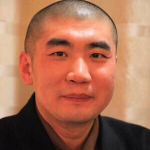
Zhan Ru is a Professor in Peking University’s School of Foreign Languages. Additionally, he is vice president of the Buddhist Association of China and vice director of the Peking University Orientalism Research Institute. His areas of research include: Buddhist and Buddhist literature, the Indian Ministry of Buddhism, Dunhuang Buddhism, Buddhist system.
Associate Editor: Jinhua CHEN (University of British Columbia)

Jinhua Chen is a professor of East Asian intellectual history (particularly religions) at the University of British Columbia, where he also served as the Canada Research Chair in East Asian Buddhism (2001-2011). He has received numerous grants and awards from major funding agencies for his work on East Asian state-church relationships, monastic (hagio-)biographical literature, Buddhist sacred sites, relic veneration, Buddhism and technological innovation in medieval China, and Buddhist translations.
Editorial Board Members (listed alphabetically):
Norihisa BABA (University of Tokyo)
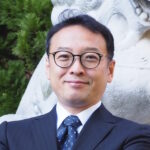
Norihisa Baba is a Professor at the Institute for Advanced Studies on Asia at the University of Tokyo. He received his Ph.D. in 2006 from the University of Tokyo. His research interests include the history and thought of Indian Buddhism and Theravāda Buddhism; the relationship between Sri Lanka and East Asia; and Modern Discourse of Buddhism. His approach is comparative using the Pāli, Sanskrit, Tibetan, Chinese, and Japanese texts. He has published several English language articles and Japanese books including The Formation of Theravāda Buddhist Thought: From the Buddha to Buddhaghosa (2008); Early Buddhism: Tracing the Buddha’s Thought (2018); and Buddhist Orthodoxy and Heresy: The Birth of the Pāli Cosmopolis (2022). He is recipient of several academic prizes such as the Japanese Association for South Asian Studies Prize, and the Japan Science Promotion Society Prize. He also serves on the editorial boards of the Journal of the International Association of Buddhist Studies.
Kate CROSBY (University of Oxford)
 Kate Crosby is the Numata Professor of Buddhist Studies at the University of Oxford. She moved to Oxford from King’s College London, and previously held posts at the universities of Edinburgh, Lancaster, Cardiff and SOAS. She studied Sanskrit, Pali and other Buddhist languages, Indian religions and Buddhism at Oxford (MA and DPhil). She also studied at the universities of Hamburg and Kelaniya, as well as with traditional teachers in Pune, Varanasi and Kathmandu. She works on Sanskrit, Pali, and Pali-vernacular literature and on Theravada practice in the pre-modern and modern periods, including on the pre-modern meditation and its relationship to temporal technologies. Her publications include a translation and study of Śāntideva’s Bodhicaryāvatāra (with co-author Andrew Skilton, 1994); Mahābhārata: The Women and the Dead of Night (2009); Traditional Theravada and its Modern-Era Suppression (2013); Theravada Buddhism: Continuity, Identity, Diversity (2014); and Esoteric Theravada: The Story of the Forgotten Meditation Tradition of Southeast Asia (2020).
Kate Crosby is the Numata Professor of Buddhist Studies at the University of Oxford. She moved to Oxford from King’s College London, and previously held posts at the universities of Edinburgh, Lancaster, Cardiff and SOAS. She studied Sanskrit, Pali and other Buddhist languages, Indian religions and Buddhism at Oxford (MA and DPhil). She also studied at the universities of Hamburg and Kelaniya, as well as with traditional teachers in Pune, Varanasi and Kathmandu. She works on Sanskrit, Pali, and Pali-vernacular literature and on Theravada practice in the pre-modern and modern periods, including on the pre-modern meditation and its relationship to temporal technologies. Her publications include a translation and study of Śāntideva’s Bodhicaryāvatāra (with co-author Andrew Skilton, 1994); Mahābhārata: The Women and the Dead of Night (2009); Traditional Theravada and its Modern-Era Suppression (2013); Theravada Buddhism: Continuity, Identity, Diversity (2014); and Esoteric Theravada: The Story of the Forgotten Meditation Tradition of Southeast Asia (2020).
Steffen DÖLL (University of Hamburg)
 Steffen Döll is Numata Professor of Japanese Buddhism and Co-Director of the Numata Center for Buddhist Studies at Hamburg University. Trained in Japanese Studies, Chinese Studies, and Religious Studies at Munich and Kyoto Universities, his research focuses on Buddhist philosophy and history, the processes of cultural transfer in East Asia, and Japanese intellectual and literary traditions. His publications include a 2005 monograph on the Kyōto school philosopher Ueda Shizuteru 上田閑照 (1926–2019), a 2010 monograph on Chinese emigrant monks and their involvement in the institutional, dogmatic, and praxeological development of Japanese Zen Buddhism, as well as a number of contributions on issues related to the history of East Asian religions and cultures.
Steffen Döll is Numata Professor of Japanese Buddhism and Co-Director of the Numata Center for Buddhist Studies at Hamburg University. Trained in Japanese Studies, Chinese Studies, and Religious Studies at Munich and Kyoto Universities, his research focuses on Buddhist philosophy and history, the processes of cultural transfer in East Asia, and Japanese intellectual and literary traditions. His publications include a 2005 monograph on the Kyōto school philosopher Ueda Shizuteru 上田閑照 (1926–2019), a 2010 monograph on Chinese emigrant monks and their involvement in the institutional, dogmatic, and praxeological development of Japanese Zen Buddhism, as well as a number of contributions on issues related to the history of East Asian religions and cultures.
Imre GALAMBOS (University of Cambridge)

Imre Galambos specialises in the study of medieval Chinese manuscripts from sites in northwestern China. He received his Ph.D. in 2002 from the University of California, Berkeley with a dissertation on the structure of Chinese characters in the pre-Qin period. For the following 10 years he worked for the International Dunhuang Project (IDP) at the British Library, as a result of which his research gradually shifted to medieval manuscripts from Dunhuang. Since 2012, he has been teaching at the University of Cambridge, where he is now Professor of Chinese. Among his main interests is the dynamics of the spread of texts and manuscripts along the multilingual networks known today as the Silk Roads. His books include Orthography of Early Chinese Writing (2006); Manuscripts and Travellers (co-authored with Sam van Schaik, 2012), Translating Chinese Tradition and Teaching Tangut Culture (2015), and Dunhuang Manuscript Culture (2020).
Noga GANANY (University of Cambridge)

Noga Ganany is an Assistant Professor in the Study of Late Imperial China at the Faculty of Asian and Middle Eastern Studies at the University of Cambridge, United Kingdom, and a Fellow of Sidney Sussex College. Her main research interests are Chinese cultural history, religious practice in China, premodern Chinese literature, print culture and history of the book, travel and pilgrimage, and popular culture. She is currently working on two book projects. Her first monograph, Origin Narratives: Hagiographic Literature and Religious Practice in Late Ming China, examines the role of commercial publishing in propagating cultic reverence of saints, gods, and immortals among lay readers. Her second book project, King Yama: Afterlife Judgments in Chinese Conceptions of the Netherworld, explores lay moral discourses in the last millennium by tracing the history of King Yama in Chinese religious practice, literature, and art. Her recent publications include “Journeys Through the Netherworld in Late Ming Hagiographic Narratives” (Late Imperial China, 2021) and “Writing and Worship in Deng Zhimo’s Saints Trilogy” (Religions 2022). Before assuming her current position at Cambridge, Dr Ganany taught briefly at Boston University (2018-2019), after receiving her PhD from Columbia University in New York (2018). Dr Ganany is a member of the board of directors of the Society for the Study of Chinese Religions (SSCR) and a board member of the Society for Ming Studies.
Phyllis GRANOFF (Yale University)
 Phyllis Granoff joined the Yale faculty on July 1, 2004. She previously taught at McMaster University, Hamilton, Ontario, Canada and has held visiting positions at the Ecole Pratique des Hautes Etudes en Sciences Sociales, Berkeley, and Harvard. She has done research in all of the classical religions of India–Buddhism, Hinduism, Jainism and has published articles on Indian art and literature. Her interests include contemporary Indian literature and she has published translations of short stories from Bengali and Oriya. She edits the Journal of Indian Philosophy. Her recent publications include The Victorious Ones: Jain Images of Perfection, an edited volume that accompanied the exhibition on Jain art that she curated at the Rubin Museum of Art. With Koichi Shinohara she has edited a number of volumes, including Images in Asian Religions and Pilgrims, Patrons and Place. Most recently they have edited a volume of essays on sin in Asian religions, to appear shortly from Brill. Among her current research projects are a study of Jain and Buddhist monastic rules on the treatment of the sick and a comprehensive examination of Jain manuscripts in American museum collections. She serves as senior advisor to the Jain Heritage Preservation Project which is run by the Jiv Daya Foundation in Dallas, Texas.
Phyllis Granoff joined the Yale faculty on July 1, 2004. She previously taught at McMaster University, Hamilton, Ontario, Canada and has held visiting positions at the Ecole Pratique des Hautes Etudes en Sciences Sociales, Berkeley, and Harvard. She has done research in all of the classical religions of India–Buddhism, Hinduism, Jainism and has published articles on Indian art and literature. Her interests include contemporary Indian literature and she has published translations of short stories from Bengali and Oriya. She edits the Journal of Indian Philosophy. Her recent publications include The Victorious Ones: Jain Images of Perfection, an edited volume that accompanied the exhibition on Jain art that she curated at the Rubin Museum of Art. With Koichi Shinohara she has edited a number of volumes, including Images in Asian Religions and Pilgrims, Patrons and Place. Most recently they have edited a volume of essays on sin in Asian religions, to appear shortly from Brill. Among her current research projects are a study of Jain and Buddhist monastic rules on the treatment of the sick and a comprehensive examination of Jain manuscripts in American museum collections. She serves as senior advisor to the Jain Heritage Preservation Project which is run by the Jiv Daya Foundation in Dallas, Texas.
Eric GREENE (Yale University)
 Eric Greene is an Associate Professor of Religious Studies. He specializes in the history of medieval Chinese Buddhism, particularly the emergence of Chinese forms of Buddhism from the interaction between Indian Buddhism and indigenous Chinese culture. Much of his recent research has focused on Buddhist meditation practices, including the history of the transmission on Indian meditation practices to China, the development of distinctly Chinese forms of Buddhist meditation, and Buddhist rituals of confession and atonement. In addition to these topics, he has published articles on the early history of Chan (Zen) Buddhism, Buddhist paintings from the Silk Roads, and the influence of modern psychological terminology on the Western interpretation of Buddhism.
Eric Greene is an Associate Professor of Religious Studies. He specializes in the history of medieval Chinese Buddhism, particularly the emergence of Chinese forms of Buddhism from the interaction between Indian Buddhism and indigenous Chinese culture. Much of his recent research has focused on Buddhist meditation practices, including the history of the transmission on Indian meditation practices to China, the development of distinctly Chinese forms of Buddhist meditation, and Buddhist rituals of confession and atonement. In addition to these topics, he has published articles on the early history of Chan (Zen) Buddhism, Buddhist paintings from the Silk Roads, and the influence of modern psychological terminology on the Western interpretation of Buddhism.
Georgios T. HALKIAS (University of Hong Kong)
 Georgios T. Halkias is Associate Professor of Buddhism and the Director of the Centre of Buddhist Studies at the University of Hong Kong. He received his DPhil in 2006 from the University of Oxford focusing on Pure Land orientations in Tibetan contexts. His main research interests include the early transmission of Buddhism to Tibet, Himalayan Buddhism, Vajrayāna contemplative systems, and Buddhism and Hellenism in India and Central Asia. His book publications include, The Copper-Colored Mountain: Jigme Lingpa on Rebirth in Padmasambhava’s Pure Land (authored with C. Partsalaki, 2022), Pure Lands in Asian Texts and Contexts: An Anthology (ed. with R. Payne, 2019), Luminous Bliss: A Religious History of Pure Land Literature in Tibet. With an Annotated Translation and Critical Analysis of the Orgyen-ling golden short Sukhāvatīvyūha (2017/2013), among others. He is the co-editor-in-chief of the Oxford Research Encyclopedia of Buddhism.
Georgios T. Halkias is Associate Professor of Buddhism and the Director of the Centre of Buddhist Studies at the University of Hong Kong. He received his DPhil in 2006 from the University of Oxford focusing on Pure Land orientations in Tibetan contexts. His main research interests include the early transmission of Buddhism to Tibet, Himalayan Buddhism, Vajrayāna contemplative systems, and Buddhism and Hellenism in India and Central Asia. His book publications include, The Copper-Colored Mountain: Jigme Lingpa on Rebirth in Padmasambhava’s Pure Land (authored with C. Partsalaki, 2022), Pure Lands in Asian Texts and Contexts: An Anthology (ed. with R. Payne, 2019), Luminous Bliss: A Religious History of Pure Land Literature in Tibet. With an Annotated Translation and Critical Analysis of the Orgyen-ling golden short Sukhāvatīvyūha (2017/2013), among others. He is the co-editor-in-chief of the Oxford Research Encyclopedia of Buddhism.
Jessica MAIN (University of British Columbia)

Jessica Main is an Assistant Professor, holding a joint appointment in the Department of Asian Studies and the Institute of Asian Research. Since Fall of 2009, she has served as The Robert H. N. Ho Family Foundation Chair in Buddhism and Contemporary Society and Director of the RHNHFF Program in Buddhism and Contemporary Society at UBC. She wrote her Ph.D. dissertation, “Only Shinran Will Not Betray Us” (McGill 2012), on the topic of descent-based discrimination, human rights, and Japanese True Pure Land, Jōdo Shinshū or Shin Buddhism, looking especially at the problem of caste-based discrimination in Shin Buddhism against the burakumin. She is currently working on a manuscript on this topic entitled, No Hatred in the Pure Land: Burakumin Activism and the Shin Buddhist Response in Interwar Japan. Her broader research interests include modern Buddhist ethics, social action, and institutional life in East and Southeast Asia, particularly in the areas of sectarian social policy, chaplaincy, youth and physical culture, public health, and professional or role-based ethics.
Michaela MROSS (Stanford University)
 Michaela Mross is assistant professor of Religious Studies at Stanford University. She specializes in Japanese Buddhism, with a particular emphasis on Sōtō Zen, Buddhist rituals, sacred music, as well as manuscript and print culture in premodern Japan. Her first book, Memory, Music, Manuscripts: The Ritual Dynamics of Kōshiki in Japanese Sōtō Zen, is forthcoming with the Kuroda Series of University of Hawai’i Press. She is currently working on a monograph on lay Buddhist choirs in contemporary Zen Buddhism, which will showcase how music played a vital role in the modernization of Japanese Sōtō Zen in the last seventy years.
Michaela Mross is assistant professor of Religious Studies at Stanford University. She specializes in Japanese Buddhism, with a particular emphasis on Sōtō Zen, Buddhist rituals, sacred music, as well as manuscript and print culture in premodern Japan. Her first book, Memory, Music, Manuscripts: The Ritual Dynamics of Kōshiki in Japanese Sōtō Zen, is forthcoming with the Kuroda Series of University of Hawai’i Press. She is currently working on a monograph on lay Buddhist choirs in contemporary Zen Buddhism, which will showcase how music played a vital role in the modernization of Japanese Sōtō Zen in the last seventy years.
Ulrike ROESLER (University of Oxford)
 Ulrike Roesler is Professor of Tibetan and Himalayan Studies at the University of Oxford. Before joining Oxford in this role, she obtained her Ph.D. in Indian Studies in Germany, taught Indian and Tibetan Studies at the Universities of Marburg and Freiburg in Germany, and was the first Numata Lecturer in Buddhist Studies at Oxford (2005-07). Her research interests include the transmission of Buddhism from India to Tibet as well as Tibetan historiography, biographical writing, and narrative literature. Her book publications include Lives Lived, Lives Imagined: Biography in the Buddhist Traditions (ed. with L. Covill and S. Shaw, 2010), a study of the 11th century Buddhist master Po to ba Rin chen gsal (Frühe Quellen zum buddhistischen Stufenweg in Tibet, 2011), and Tibetan and Himalayan Healing (ed. with Ch. Ramble, 2015).
Ulrike Roesler is Professor of Tibetan and Himalayan Studies at the University of Oxford. Before joining Oxford in this role, she obtained her Ph.D. in Indian Studies in Germany, taught Indian and Tibetan Studies at the Universities of Marburg and Freiburg in Germany, and was the first Numata Lecturer in Buddhist Studies at Oxford (2005-07). Her research interests include the transmission of Buddhism from India to Tibet as well as Tibetan historiography, biographical writing, and narrative literature. Her book publications include Lives Lived, Lives Imagined: Biography in the Buddhist Traditions (ed. with L. Covill and S. Shaw, 2010), a study of the 11th century Buddhist master Po to ba Rin chen gsal (Frühe Quellen zum buddhistischen Stufenweg in Tibet, 2011), and Tibetan and Himalayan Healing (ed. with Ch. Ramble, 2015).
Robert SHARF (University of California, Berkeley)

Robert Sharf is D. H. Chen Distinguished Professor of Buddhist Studies in the Department of East Asian Languages and Cultures at the University of California, Berkeley. He works primarily in the area of medieval Chinese Buddhism (especially Chan), but also dabbles in Japanese Buddhism, Buddhist art, ritual studies, and methodological issues in the study of religion. In addition to his appointment in East Asian Languages and Cultures, he is Chair of the Center for Buddhist Studies at UC Berkeley. He also serves on the editorial boards of the Journal of the International Association of Buddhist Studies, the Journal for the Study of Chinese Religions, the Journal of Religion in Japan, and the Kuroda Institute Series published in conjunction with University of Hawai‘i Press.
Eviatar SHULMAN (Hebrew University of Jerusalem)

Eviatar Shulman is currently the Chair of the Department for Comparative Religion and member of the Department for Asian Studies at the Hebrew University of Jerusalem. His work focuses mainly on different aspects of Buddhist religion and philosophy, with special interest in recent years in Early, or more generally in Pāli, Buddhism. Among his many publications are Rethinking the Buddha: Early Buddhist Philosophy as Meditative Perception (Cambridge University Press, 2014), and Visions of the Buddha: Creative Dimensions of Early Buddhist Scripture (Oxford University Press, 2021). The latter work outlines a new approach to the composition of the early discourses (Suttas, Sūtras) attributed to the Buddha.
Yinggang SUN (Zhejiang University)

Studied at Beijing University (1996-2003) and Princeton University (2003-2009, Ph. D from Department of East Asian Studies); Associate Professor of Medieval Chinese History at Fudan University (Shanghai, 2009-2016); Currently Professor of Medieval Chinese History (2016-), Dean of School of History (2021-) at Zhejiang University, Hangzhou; Visiting scholar to Tokyo University (2010) and Yale University (2015-2016).
Research Interests include medieval history (Northern and Southern Dynasties, Tang Dynasty) and History of Buddhism (especially Buddhism and Medieval Monarchship as well as Buddhism and the Silk Road). Currently work on how Gandharan Buddhism influenced Medieval Chinese History.
Stephen F. TEISER (Princeton University)

Stephen F. Teiser is D. T. Suzuki Professor in Buddhist Studies and Professor of Religion in the Department of Religion at Princeton University. His work traces the interaction between cultures using textual, artistic, and material remains from the Silk Road, specializing in Buddhism and Chinese religions. He also serves as director of Princeton’s interdepartmental Program in East Asian Studies, and in 2014 he received the Graduate Mentoring Award in the Humanities from Princeton University’s McGraw Center for Teaching and Learning. He has also edited several books, including Readings of the Platform Sūtra (2012) and Readings of the Lotus Sūtra (2009).
Barend TER HAAR (University of Hamburg)

Barend ter Haar teaches Chinese studies at Hamburg University, with a strong focus on cultural and religious history. Although first of all a social and cultural historian, the religious dimension is so central to Chinese traditional life that much of his research up to now has dealt with religious phenomena. In addition, he has worked extensively on issues of ethnic identity, violence and fear, and social organization. An important concern of his is to demonstrate that traditional culture and cultural patterns are still relevant today, as becomes visible for instance in the case of the Falun Gong or the ongoing role of exorcist violence in political contexts throughout the twentieth century. For those who read Dutch, he has published a history of China, entitled The Heavenly Mandate: The history of the Chinese Empire until 1911 or Het Hemels Mandaat: De Geschiedenis van het Chinese Keizerrijk (AUP: Amsterdam, 2009) with a somewhat revisionist view on the Chinese past. His book on the lay Buddhist group called the Non-Action Teachings (late 16th century to the present) has come out with Hawai‘i University Press, as Practicing Scripture: A Lay Buddhist Movement in Late Imperial China.
Eugene WANG (Harvard University)
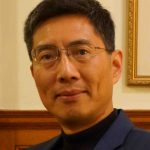
Eugene Y. Wang is the Abby Aldrich Rockefeller Professor of Asian Art. A Guggenheim Fellow (2005), he is the art history editor of the Encyclopedia of Buddhism (2004). His extensive publications range from early Chinese to contemporary art. His book, Shaping the Lotus Sutra: Buddhist Visual Culture in Medieval China (2005), which received an academic award from Japan, explores Buddhist ways of worldmaking. He has served on advisory boards and review committees for the Center for Advanced Study in Visual Art, National Gallery of Art, Washington, DC, Getty Foundation, Mellon Foundation, etc. His current research focuses on cognitive study of art. He is working on a book on Sonic Painting, probing the unheard soundscape and voice effect in pictures. He is also the founding director of the Harvard FAS CAMLab (Chinese Art Media Lab). The lab explores multimedia storytelling and designs immersive artistic experience, turning humanistic research into creative sensorial media practice.
♰ Stefano ZACCHETTI, in memoriam (University of Oxford)

Dr. Stefano Zacchetti is the Yehan Numata Professor of Buddhist Studies and a fellow of Balliol College. His research interests include early Chinese Buddhist translations (2nd-5th centuries CE), Mahāyāna literature in Sanskrit and Chinese, the history of the Chinese Buddhist Canon, and Chinese Buddhism (particularly early Chinese Buddhist commentaries). Dr. Zacchetti’s current projects include work on the Larger Prajñāpāramitā: basic texts and commentaries (edition of the Gilgit manuscript of the Larger PP; study and translation of the Da zhidu lun 大智度論 T 1509), the development of early Buddhist exegetical literature in China, and the formation of the Chinese Buddhist canon.
Xing ZHANG (Peking University)
 Dr. Xing Zhang is Associate Professor and Head of the Section of South Asian Culture at Department of South Asian Studies, Peking University, China and Visiting Professor at Université de Montréal, Canada. She has been Visiting Scholar at Humboldt-Universität zu Berlin and Max-Planck-Gesellschaft, Germany. Her research focuses on South Asian society and culture, Indian languages and literature, China-India cultural exchanges as well as intercultural studies. Her research and fieldwork have been supported by grants and fellowships from Germany, Singapore and Canada. She also served as key member of several research projects supported by National Social Science Foundation of China. She has published a number of articles in SSCI and CSSCI journals and is the author of The Chinese Community in Calcutta (2015), and Preserving Cultural Identity through Education (2010).
Dr. Xing Zhang is Associate Professor and Head of the Section of South Asian Culture at Department of South Asian Studies, Peking University, China and Visiting Professor at Université de Montréal, Canada. She has been Visiting Scholar at Humboldt-Universität zu Berlin and Max-Planck-Gesellschaft, Germany. Her research focuses on South Asian society and culture, Indian languages and literature, China-India cultural exchanges as well as intercultural studies. Her research and fieldwork have been supported by grants and fellowships from Germany, Singapore and Canada. She also served as key member of several research projects supported by National Social Science Foundation of China. She has published a number of articles in SSCI and CSSCI journals and is the author of The Chinese Community in Calcutta (2015), and Preserving Cultural Identity through Education (2010).
Executive Editors (listed alphabetically):
Wu DAO (Mount Kuaiji Institute of Advanced Research on Buddhism; shamendaowu@163.com)
Maggie MITCHELL (maggie.mitchell.editing@gmail.com)
Mingli SUN (University of British Columbia; mingli.sun@ubc.ca)
Editorial Assistants (listed alphabetically):
Xi MA (Nankai University; 1127986623@qq.com)
Shoucheng SHEN (Capital Normal University; shenshoucheng1980@126.com)
Zeng YANG (University of British Columbia; putizi@gmail.com)
Administrative Coordinator: Vicky BAKER
Communications Officer: Carol LEE (University of British Columbia)






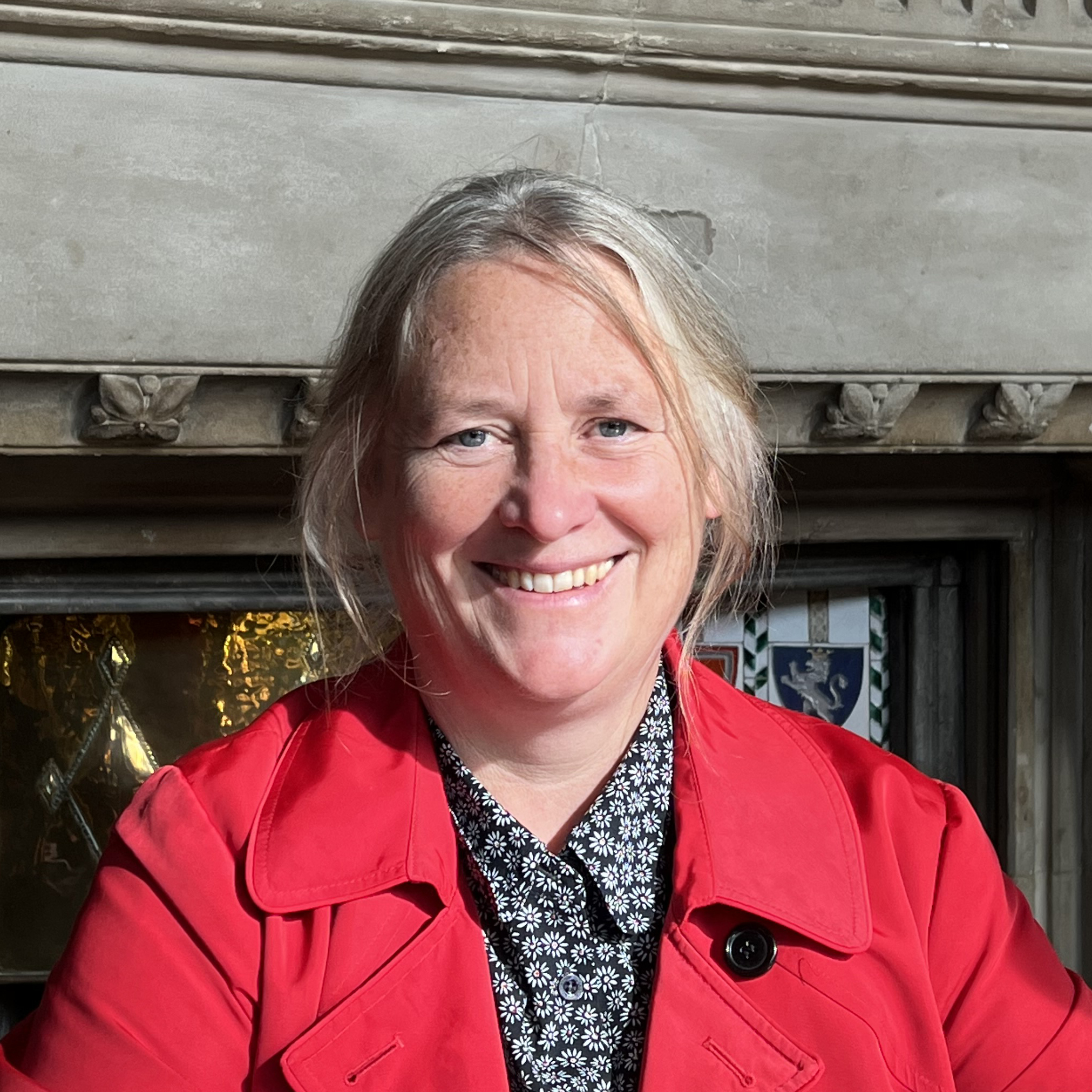



 Eric Greene is an Associate Professor of Religious Studies. He specializes in the history of medieval Chinese Buddhism, particularly the emergence of Chinese forms of Buddhism from the interaction between Indian Buddhism and indigenous Chinese culture. Much of his recent research has focused on Buddhist meditation practices, including the history of the transmission on Indian meditation practices to China, the development of distinctly Chinese forms of Buddhist meditation, and Buddhist rituals of confession and atonement. In addition to these topics, he has published articles on the early history of Chan (Zen) Buddhism, Buddhist paintings from the Silk Roads, and the influence of modern psychological terminology on the Western interpretation of Buddhism.
Eric Greene is an Associate Professor of Religious Studies. He specializes in the history of medieval Chinese Buddhism, particularly the emergence of Chinese forms of Buddhism from the interaction between Indian Buddhism and indigenous Chinese culture. Much of his recent research has focused on Buddhist meditation practices, including the history of the transmission on Indian meditation practices to China, the development of distinctly Chinese forms of Buddhist meditation, and Buddhist rituals of confession and atonement. In addition to these topics, he has published articles on the early history of Chan (Zen) Buddhism, Buddhist paintings from the Silk Roads, and the influence of modern psychological terminology on the Western interpretation of Buddhism.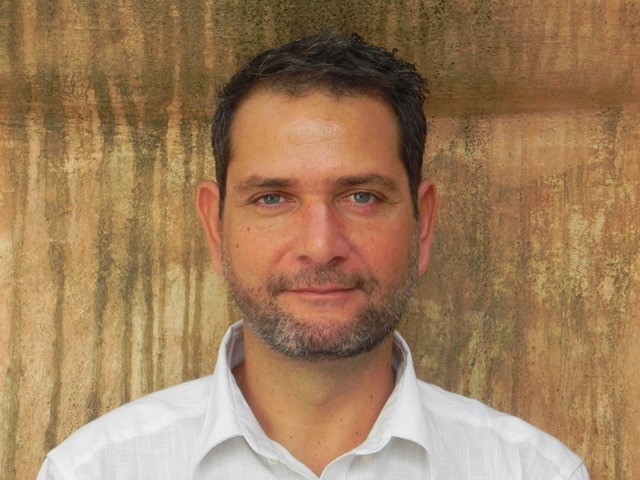

 Michaela Mross is assistant professor of Religious Studies at Stanford University. She specializes in Japanese Buddhism, with a particular emphasis on Sōtō Zen, Buddhist rituals, sacred music, as well as manuscript and print culture in premodern Japan. Her first book, Memory, Music, Manuscripts: The Ritual Dynamics of Kōshiki in Japanese Sōtō Zen, is forthcoming with the Kuroda Series of University of Hawai’i Press. She is currently working on a monograph on lay Buddhist choirs in contemporary Zen Buddhism, which will showcase how music played a vital role in the modernization of Japanese Sōtō Zen in the last seventy years.
Michaela Mross is assistant professor of Religious Studies at Stanford University. She specializes in Japanese Buddhism, with a particular emphasis on Sōtō Zen, Buddhist rituals, sacred music, as well as manuscript and print culture in premodern Japan. Her first book, Memory, Music, Manuscripts: The Ritual Dynamics of Kōshiki in Japanese Sōtō Zen, is forthcoming with the Kuroda Series of University of Hawai’i Press. She is currently working on a monograph on lay Buddhist choirs in contemporary Zen Buddhism, which will showcase how music played a vital role in the modernization of Japanese Sōtō Zen in the last seventy years. Ulrike Roesler is Professor of Tibetan and Himalayan Studies at the University of Oxford. Before joining Oxford in this role, she obtained her Ph.D. in Indian Studies in Germany, taught Indian and Tibetan Studies at the Universities of Marburg and Freiburg in Germany, and was the first Numata Lecturer in Buddhist Studies at Oxford (2005-07). Her research interests include the transmission of Buddhism from India to Tibet as well as Tibetan historiography, biographical writing, and narrative literature. Her book publications include Lives Lived, Lives Imagined: Biography in the Buddhist Traditions (ed. with L. Covill and S. Shaw, 2010), a study of the 11th century Buddhist master Po to ba Rin chen gsal (Frühe Quellen zum buddhistischen Stufenweg in Tibet, 2011), and Tibetan and Himalayan Healing (ed. with Ch. Ramble, 2015).
Ulrike Roesler is Professor of Tibetan and Himalayan Studies at the University of Oxford. Before joining Oxford in this role, she obtained her Ph.D. in Indian Studies in Germany, taught Indian and Tibetan Studies at the Universities of Marburg and Freiburg in Germany, and was the first Numata Lecturer in Buddhist Studies at Oxford (2005-07). Her research interests include the transmission of Buddhism from India to Tibet as well as Tibetan historiography, biographical writing, and narrative literature. Her book publications include Lives Lived, Lives Imagined: Biography in the Buddhist Traditions (ed. with L. Covill and S. Shaw, 2010), a study of the 11th century Buddhist master Po to ba Rin chen gsal (Frühe Quellen zum buddhistischen Stufenweg in Tibet, 2011), and Tibetan and Himalayan Healing (ed. with Ch. Ramble, 2015).





 Dr. Xing Zhang is Associate Professor and Head of the Section of South Asian Culture at Department of South Asian Studies, Peking University, China and Visiting Professor at Université de Montréal, Canada. She has been Visiting Scholar at Humboldt-Universität zu Berlin and Max-Planck-Gesellschaft, Germany. Her research focuses on South Asian society and culture, Indian languages and literature, China-India cultural exchanges as well as intercultural studies. Her research and fieldwork have been supported by grants and fellowships from Germany, Singapore and Canada. She also served as key member of several research projects supported by National Social Science Foundation of China. She has published a number of articles in SSCI and CSSCI journals and is the author of The Chinese Community in Calcutta (2015), and Preserving Cultural Identity through Education (2010).
Dr. Xing Zhang is Associate Professor and Head of the Section of South Asian Culture at Department of South Asian Studies, Peking University, China and Visiting Professor at Université de Montréal, Canada. She has been Visiting Scholar at Humboldt-Universität zu Berlin and Max-Planck-Gesellschaft, Germany. Her research focuses on South Asian society and culture, Indian languages and literature, China-India cultural exchanges as well as intercultural studies. Her research and fieldwork have been supported by grants and fellowships from Germany, Singapore and Canada. She also served as key member of several research projects supported by National Social Science Foundation of China. She has published a number of articles in SSCI and CSSCI journals and is the author of The Chinese Community in Calcutta (2015), and Preserving Cultural Identity through Education (2010).